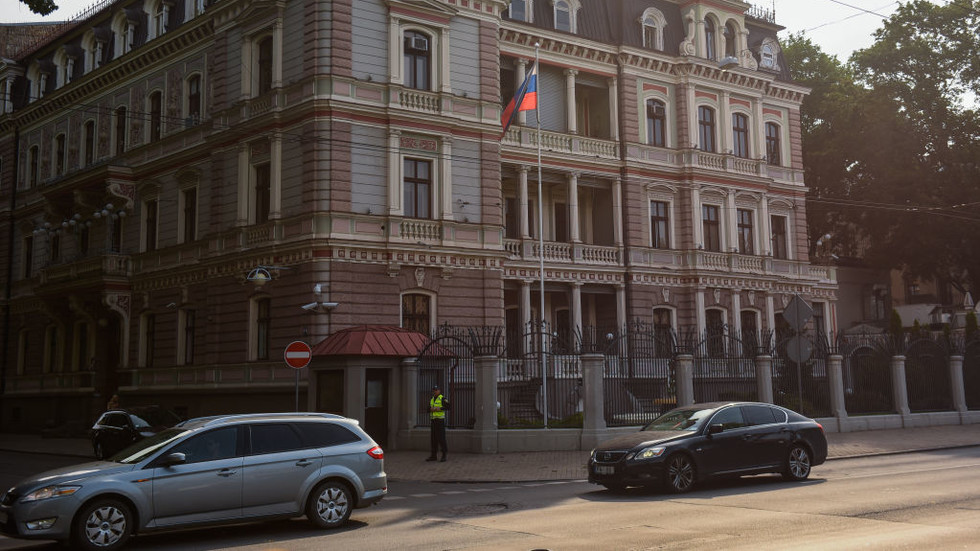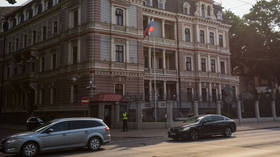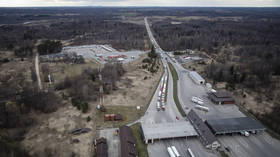
Latvia may deport Russians who participate in the upcoming presidential election, the country’s police chief has said

Cars drive by Russia’s embassy in Riga, Latvia, August 7, 2019 © Getty Images / Omar Marques
Latvian police will “screen” Russians who visit their country’s embassy to vote in this week’s presidential election, Head of State Police Armands Ruks told local media on Monday. Some of those screened could be selected for deportation, Ruks warned.
Nearly a quarter of Latvia’s population is ethnically Russian, and the Baltic state is home to around 25,000 Russian citizens. This latter group is entitled to vote in the upcoming Russian presidential election, which runs from Friday until Sunday.
However, those traveling to the Russian embassy in Riga to cast their ballots will face “enhanced” security checks, Ruks told TV3.
“Access to the embassy will be controlled accordingly. Residence permit and visa checkpoints will be set up in conjunction with the State Border Guard,” he said. Ruks warned that immigration officers will also be patrolling, and that he was “not ruling out immediate deportations” if voters are found to be breaching their terms of stay in Latvia.

Read more
The police chief also cautioned that officers will be ready to “suppress any attempts to glorify Russian aggression.” While Ruks did not explain what he considered glorification, Latvian Justice Minister Inese Libina-Egnere said last month that anyone entering the embassy to vote essentially “supports the war” in Ukraine.
Latvia has taken a hardline anti-Russia stance since the conflict in Ukraine broke out. In addition to spending more than 1% of its entire GDP on weapons for Kiev, Latvia has begun to deport of thousands of Russians who refused to take or failed a mandatory Latvian language test, and has also destroyed Soviet-era World War II monuments, and arrested dozens of people for celebrating the Soviet Union’s victory over Nazi Germany.
In January, Russian Foreign Ministry spokeswoman Maria Zakharova warned the authorities in Riga that the deportations represent an “openly criminal” treatment of Russians, adding that Moscow will “not forget and not forgive” those responsible for this “evil act.”




